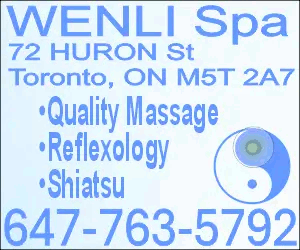Owners of massage parlors will have to take an extra step and obtain a permit if they want to operate in Glendale in the future.
The Planning Commission voted 4-0 Wednesday to require all new and existing massage establishments to apply for a conditional-use permit — a process that entails a background check.
The update to the city code comes after a state law expired, and California officials reverted authority to regulate massage parlors back to municipalities and treat them like any other business.
When the law was in effect, it led to a proliferation of such businesses, some of which were bad apples and participated in illegal activity, said City Manager Scott Ochoa.
The City Council enacted a moratorium in the beginning of the year on new massage parlors, but there are already more than 100 of them in Glendale.
That expansion has led to worries that some massage parlors could be fronts for activities such as prostitution.
Now the city has to recover lost ground, Ochoa said.
“We’re trying to [put] bandages on the wounds in an environment where we’re already short-handed when it comes to code enforcement,” he said.
All existing massage parlors must comply with the permit requirement by 2018.
The proposed code amendments now head to the City Council for final consideration.
The champion of the issue has been Councilman Zareh Sinanyan, who said having too many massage parlors amass in only parts of the city, such as Colorado Street, has a negative impact on quality of life.
Ochoa said he agrees. Though some might call prostitution a victimless crime, the circumstances behind the crime aren’t something the people of Glendale want in their community, he said.
“It’s not a victimless crime if the cost is human trafficking,” Ochoa said.
There have been reports of customers asking for sexual favors at some massage establishments and cases of inappropriate touching, said Deputy Police Chief Carl Povilaitis.
In addition, those businesses with obstructed storefront windows will have to modify them as part of the code upgrades.
“It has to give access that makes the hallway lobby of the massage establishment visible from an exterior location like a sidewalk or a street,” said Planner Chris Baghdikian.
Having a blacked-out storefront that looks vacated or blighted is an example of a negative indirect impact on the community, Ochoa said.
“Things like that ultimately start to degenerate the vibrancy of a commercial street,” he said.
--
Arin Mikailian, [email protected]
Twitter: @ArinMikailian
This entry passed through the Full-Text RSS service - if this is your content and you're reading it on someone else's site, please read the FAQ at fivefilters.org/content-only/faq.php#publishers.
The Planning Commission voted 4-0 Wednesday to require all new and existing massage establishments to apply for a conditional-use permit — a process that entails a background check.
The update to the city code comes after a state law expired, and California officials reverted authority to regulate massage parlors back to municipalities and treat them like any other business.
When the law was in effect, it led to a proliferation of such businesses, some of which were bad apples and participated in illegal activity, said City Manager Scott Ochoa.
The City Council enacted a moratorium in the beginning of the year on new massage parlors, but there are already more than 100 of them in Glendale.
That expansion has led to worries that some massage parlors could be fronts for activities such as prostitution.
Now the city has to recover lost ground, Ochoa said.
“We’re trying to [put] bandages on the wounds in an environment where we’re already short-handed when it comes to code enforcement,” he said.
All existing massage parlors must comply with the permit requirement by 2018.
The proposed code amendments now head to the City Council for final consideration.
The champion of the issue has been Councilman Zareh Sinanyan, who said having too many massage parlors amass in only parts of the city, such as Colorado Street, has a negative impact on quality of life.
Ochoa said he agrees. Though some might call prostitution a victimless crime, the circumstances behind the crime aren’t something the people of Glendale want in their community, he said.
“It’s not a victimless crime if the cost is human trafficking,” Ochoa said.
There have been reports of customers asking for sexual favors at some massage establishments and cases of inappropriate touching, said Deputy Police Chief Carl Povilaitis.
In addition, those businesses with obstructed storefront windows will have to modify them as part of the code upgrades.
“It has to give access that makes the hallway lobby of the massage establishment visible from an exterior location like a sidewalk or a street,” said Planner Chris Baghdikian.
Having a blacked-out storefront that looks vacated or blighted is an example of a negative indirect impact on the community, Ochoa said.
“Things like that ultimately start to degenerate the vibrancy of a commercial street,” he said.
--
Arin Mikailian, [email protected]
Twitter: @ArinMikailian
This entry passed through the Full-Text RSS service - if this is your content and you're reading it on someone else's site, please read the FAQ at fivefilters.org/content-only/faq.php#publishers.











































































































